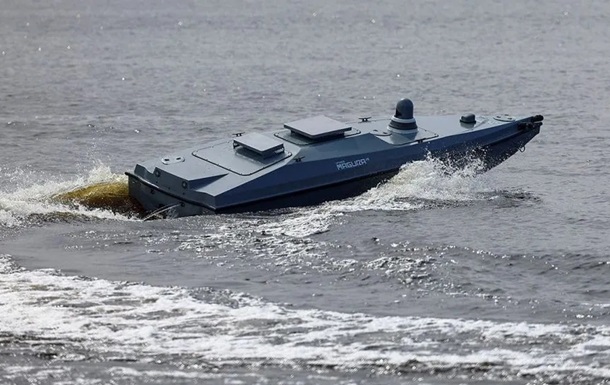On November 3, Ukrainian President Volodymyr Zelensky announced a new defense strategy that attracted attention: The country will establish specialized offices for arms exports and joint production in Germany and Denmark this year.
The move is seen as a paradox, as Ukraine is still heavily reliant on military aid from its allies to counter Russian forces in the conflict. However, Kiev believes this is a mandatory strategy to be autonomous in defense supply.
Speaking to reporters, Mr. Zelensky clearly explained that this was a "double-way" strategy. He said the weapons that Kiev will export abroad include naval drones and artillery systems - areas where Ukraine's youth defense industry has made progress.

The purpose of the export is not because Ukraine has excess weapons, but to make money. "This is about co-production and export... of weapons that we can allow ourselves to sell," he said. The proceeds from selling weapons abroad will be used to earn more money for domestic production of deficit goods that Ukraine cannot afford to buy.
These "deadly items" are the high-tech weapons that Ukraine still completely depends on its allies, such as the F-16 fighter jets and advanced air defense systems such as patriot.
By selling weapons it has strengths (such as drones) abroad, Kiev hopes to be financially autonomous in buying or self-producing other weapons that its allies do not provide enough of.
To boost the domestic industry, Mr. Zelensky also added that Ukraine plans to start mass production of its domestic missiles - called Flamingo and Ruta - by the end of this year.
In a related development, President Zelensky said a Ukrainian delegation will travel to Washington next week to negotiate further a US-Ukraine drone deal. This is seen as an effort to strengthen relations with the Trump administration, especially after Trump recently publicly "said no" to the supply of Tomahawk missiles to Kiev.











